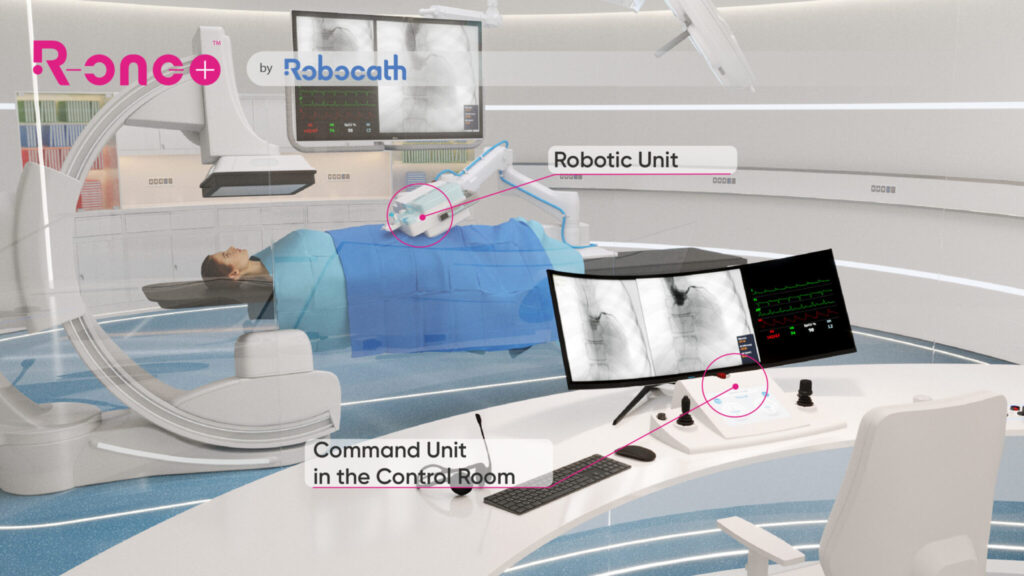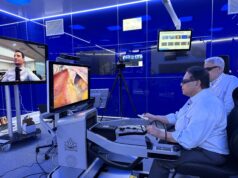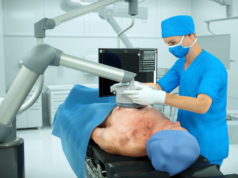 Robocath has announced the launch of its latest robotic platform—the R-One+.
Robocath has announced the launch of its latest robotic platform—the R-One+.
The company is showcasing the new system during the EuroPCR conference (16–19 May, Paris, France).
The R-One+ robotic solution allows the interventional cardiologist to perform percutaneous coronary intervention (PCI) by controlling the devices using an integrated control command unit located in the cath lab or in the control room, the company said in a press release. According to Robocath, this creates two main benefits: firstly, the system protects the cardiologist and the medical team against radiation-induced injuries, and secondly it makes the PCI procedure easier and safer.
“For the first time, I was able to perform several robotic angioplasties from the comfort of my chair in the control room, where I was completely shielded from X-rays and could dispense with my lead apron,” said Mohammed Nejjari (Centre Cardiologique du Nord, Saint-Denis, France). “I also benefited from the excellent visibility on the radioscopy and hemodynamic monitoring screens. This new set-up has changed the way we organise our procedures and has given nursing staff the opportunity to develop new skills.
“This new approach has also enabled doctors to shift their focus back to their core activities and to perform procedures in complete safety and with millimeter precision. I am excited to incorporate this new robotic technology into my day-to-day work. Without doubt, it opens up some new and extremely promising avenues for the treatment of cardiovascular diseases, especially in the case of long and complex procedures.”
“R-One+ makes it extremely easy to position devices with millimeter precision. It is also much more comfortable to operate using robotic technology, and, as the prinicipal operator, I am completely protected from radiation. I firmly believe that robotics has a major role to play in the transformation of interventional cardiology and the use of this technology will mark a new chapter in the history of our field,” said Michael Haude (Lukaskrankenhaus Hospital, Neuss, Germany).










